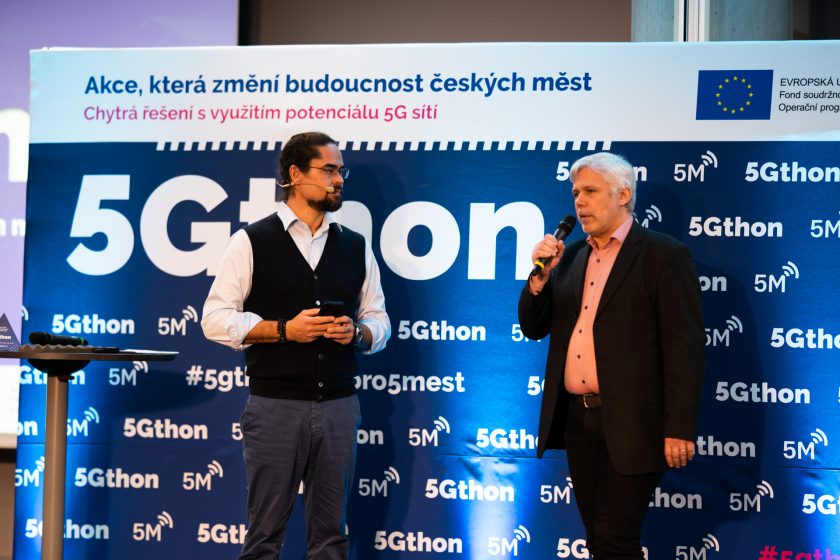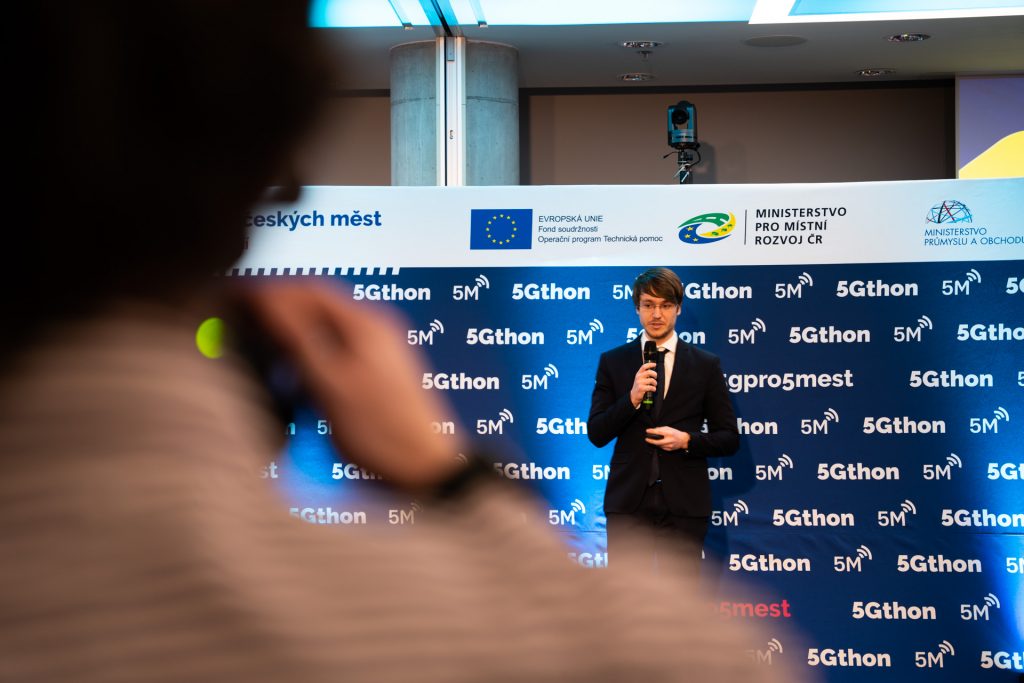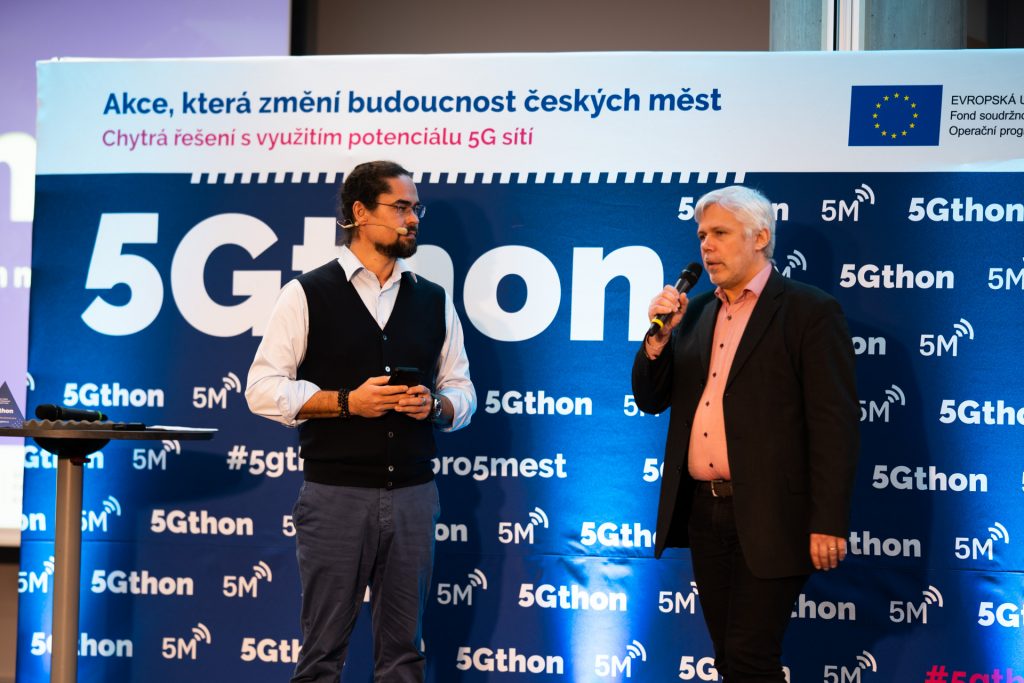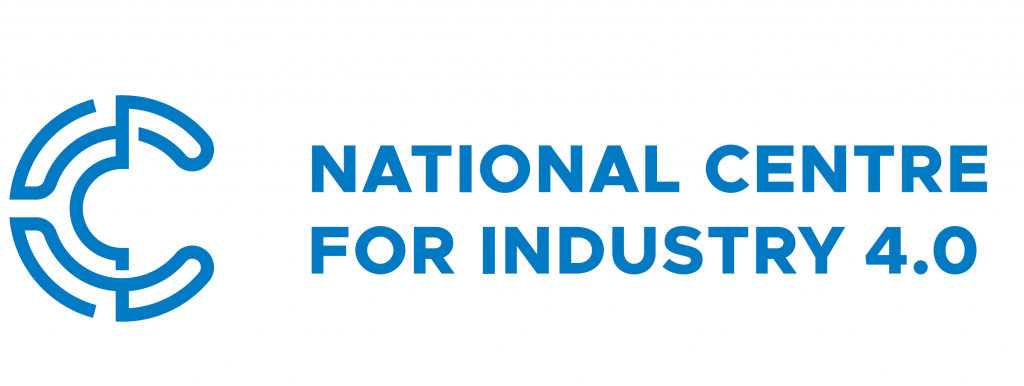Author
Robert Keil, National Centre for Industry 4.0

On February 22, 2022, 5Gthon, a conference aimed at finding smart solutions for the development and future of Czech cities and showing examples of good practice, as well as the limits of the use of 5G technologies in the Czech Republic, took place. The conference itself was preceded by a two-day competition, the so-called ideathon, which culminated in the presentation of six concrete innovative proposals for improving life in Czech cities and towns, which are based on the use of 5G network technology. RICAIP was presented at the event through specific examples of cooperation within the Testbed for Industry 4.0 at CIIRC CTU.


Representatives of cities included in the Smart Cities project, representatives of 5G network operators, leading domestic and foreign experts in the field of innovation, 5G technologies and Smart Cities, and state representatives spoke at the conference. Pavel Burget, head of the CIIRC CTU Testbed, presented the 5G Stand-alone network in Testbed for Industry 4.0 at CIIRC CTU, which was introduced in cooperation with T-Mobile, and specific examples of industrial applications. Collaborating National Industry Center 4.0 was represented by Business Development Manager Robert Keil, who presented the possibilities of using 5G networks in industry and testbed infrastructure as places where companies can test the specific operation of the 5G network for their specific purposes before putting it into practice.
If I were to think about the main benefits of testbeds, then it’s definitely an opportunity to test solutions before putting them into practice. If you are considering the use of a 5G network and its introduction into production, then here you can not only try it out, but also consult with professionals who have know-how from research as well as from industrial practice. 5G brings a good opportunity to overtake the competition, and in testbeds under the supervision of experts.
Robert Keil
At a subsequent panel discussion, representatives of the five participating cities in the 5G project for 5 cities discussed the experience with the implementation of 5G networks, the implementation of smart solutions and the changes that these solutions brought. In the follow-up program, the competition teams presented their proposals for smart solutions, the relevance, impact and usability of which were assessed by an expert jury. The absolute winner was the Intellmaps Digital Twin 5 solution, which makes it possible to simplify their management by creating a digital twin model. The audience award went to the INSPIRO AI team, whose system is designed to help measure air quality and noise pollution.
The whole event presented a wide range of possibilities for using 5G networks. At the same time, however, it defined the meaningfulness of their use and implementation, while one of the most meaningful uses with regard to their technological properties, undoubtedly lies in industrial production. A great benefit of the event was the opportunity to see how the different parts of the ecosystem intersect and how important they are – from the national (European) standardization and funding framework, through specific regional projects, providing the technology framework through large players (mobile operators), testing on the necessary infrastructure and subsequent final implementation on partial real examples.

